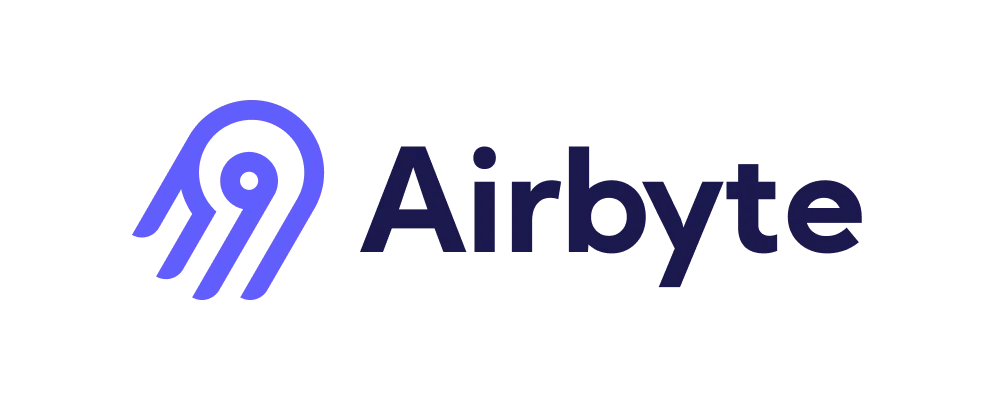Airbyte Vs Singer: Key Features and Differences
Below is a comparison table between Airbyte and Singer, highlighting their key features, differences, and the contexts in which each tool excels.
Airbyte and Singer are two open-source data integration / ETL alternatives. Compare data sources and destinations, features, pricing and more. Understand their differences and pros / cons.
vs.





%201.svg)


















Below is a comparison table between Airbyte and Singer, highlighting their key features, differences, and the contexts in which each tool excels.


Pre-built connectors are the primary way to differentiate ETL / ELT solutions, as they enable data teams to focus only on the insights to build.
Airbyte’s approach to its connectors is unique in three ways:
1. Airbyte is the only platform supporting structured and unstructured sources and vector database destinations for your AI use cases.
2. Airbyte offers Airbyte-official connectors on which it provides an SLA, and a marketplace of connectors powered by the community and built from Airbyte’s Connector Builder (low-code, no-code, or AI-powered). Marketplace connectors have quality and usage indicators. This approach enables Airbyte to offer the largest and fastest-growing catalog of more than 550 connectors.
3. All Airbyte connectors are open-sourced, giving users the ability to edit them at will. However, all connectors built with the Connector Builder can be customized. Adding a new stream only takes minutes, as does building a new connector from scratch.
This open approach empowers Airbyte users to address the growing list of custom connectors they need, while those same users would have to build connectors in-house with a closed-source solution.
Airbyte will also start offering reverse-ETL connectors in 2025.
Talend (acquirer of StitchData) seems to have stopped investing in maintaining Singer’s community and connectors. As most connectors see schema changes several times a year, more and more Singer’s taps and targets are not actively maintained and are becoming outdated.
On Singer, each connector is its own open-source project. So you never know the quality of a tap or target until you have actually used it. There is no guarantee whatsoever about what you’ll get.
Finally, Singer’s connectors are standalone binaries: you still need to build everything around to make them work (e.g., UI, configuration validation, state management, normalization, schema migration, monitoring, etc.).
Airbyte offers two options to get your data out of the box: a serialized JSON object and the normalized version of the record as tables. Airbyte also offers custom transformations via SQL and through deep integration with dbt, allowing their users and customers to trigger their own dbt packages at the destination level right after the EL. To help with this, Airbyte open-sourced a few dbt models to have analytics-ready data at your destination.
Airbyte also supports RAG-specific transformations, including chunking powered by LangChain and embeddings enabled by OpenAI, Cohere, and other providers. This allows you to load, transform, and store data in a single operation.
Finally, Airbyte is offering some mapping features, enabling its users to perform column selection or hashing, handle PII, filtering, and more.
Singer doesn’t provide any transformation features.
Every company has custom data architectures and, therefore, unique data integration needs. A lot of tools don’t enable teams to address those, which results in a lot of investment in building and maintaining additional in-house scripts.
Airbyte’s architecture modularity implies that you can leverage any part of Airbyte. For instance, you can:
It also means you can edit any pre-built connectors to your own specific needs or even leverage the no-code / low-code / AI-powered Connector Builder to build your own custom connectors in minutes (instead of days) and share their maintenance with the community and the Airbyte team.
Airbyte’s promise is to address all your data movement needs.
Being open source means you can leverage Singer’s taps and targets the way you want. But the lack of standardization across them makes it a difficult task to leverage those connectors to address your custom needs.
Data integration tools can be complex, so customers need to have great support channels. This includes online documentation as well as tutorials, email and chat support. More complicated tools may also offer training services.
Airbyte Cloud provides in-app support with an average response time of less than 1 hour.
Its documentation is comprehensive and complete with engaging tutorials and quickstarts. Airbyte also has a Slack, GitHub, and Discourse community where help is available from the Airbyte team, other users, or contributors.
Airbyte does not yet provide training services, but it offers its Airbyte Cloud and Enterprise customers a premium support option with SLAs.
Singer has a dying Slack community, and doesn’t provide any support. It has open-sourced documentation.
Airbyte provides a 14-day free trial. After the trial, prices are available depending on the volume of data you wish to replicate. The cost associated with the Enterprise and Team editions depends on two factors—the number of connections (data sources) and data sync frequency.
Airbyte doesn’t charge for failed syncs or normalization.
Airbyte offers adapted pricing to customers with large data volumes.
Singer’s premium service is Stitch. Please refer to the Airbyte vs. Stitch article for more details.
Airbyte and Singer both offer valuable solutions for data integration, each with distinct approaches and features. Airbyte provides a unified platform with extensive connector support and a user-friendly interface, making it accessible for teams seeking streamlined data integration without extensive coding. Its centralized repository and flexibility in connector development languages further enhance its appeal. Conversely, Singer's modular design offers high customization, allowing users to build and share their own connectors, which is advantageous for teams with specific requirements and the technical expertise to manage custom infrastructure. Ultimately, the choice between Airbyte and Singer should align with your organization's technical capabilities, customization needs, and resource availability to ensure an effective and efficient data integration strategy.
Airbyte is the leading open data movement platform, created in July 2020. Airbyte offers more than 550+ data connectors in its marketplace, with over 7,000 companies using it to sync data daily. In an AI world with an ever-growing list of data sources, Airbyte positions itself as the only futureproof solution. It offers extensibility through Connector Builder and a marketplace, supports unstructured sources and vector database destinations, and allows both self-hosted and cloud-hosted options.
Singer is an open-source JSON-based ETL framework. It was introduced in 2017 by Stitch (which was acquired by Talend in 2018) as a way to offer extendibility to the connectors they had pre-built. Talend has unfortunately stopped investing in Singer’s community and providing maintenance for the Singer’s taps and targets, which are increasingly outdated.
